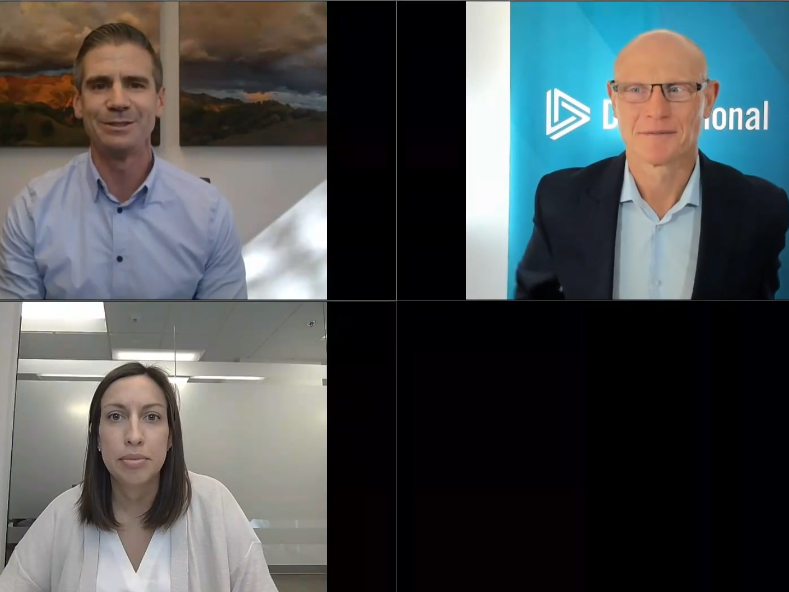By Kelly Metzler, CFP®
While we tend to believe 65 is the ideal retirement age, more and more people are finding ways to retire early. Perhaps this is a goal you’ve considered for a while, or you’d just like the peace of mind in knowing you could retire if you wanted to. Whatever your reason, there are a few key ideas and factors you should work through before heading out of the office for good.
Here’s a look at what it takes for executives to establish financial independence early and prepare to leave work behind when the time is right.
Determine How Much You’ll Need in Retirement
It’s not uncommon for people to spend 20 or even 30+ years enjoying retirement — especially those who retire early. As you think about achieving financial independence, you must be realistic in planning for a multi-decades-long retirement.
Every year of work you give up before the traditional retirement age needs to be considered carefully. Not only are you passing up on another year’s worth of retirement contributions and other savings, but you’re also adding to the number of years you’ll be drawing down your investment portfolio.
Now’s the time to review your recurring expenses and get a good handle on your current spending habits. To do this, you may find it helpful to review bank and credit card statements over the last 12 months. This will give you the most realistic view of how much you’re regularly spending.
Keep in mind that when you actually enter into retirement, it’s possible you may initially be spending more. People who retire early tend to enjoy an active lifestyle and pursue things like traveling, starting new hobbies, joining social clubs, etc. These are additional expenses you’ll need to account for when developing a savings strategy.
Developing an Early Retirement Income Strategy
Depending on when you retire, it’s possible you won’t be able to access your 401(k) or IRA (without incurring penalties). In most cases, you must be at least 59.5 or older to be able to withdraw penalty-free from these accounts. In addition, you may not be able to begin collecting Social Security benefits until age 62 at the earliest. And even then, it’s often advantageous to wait until at least full retirement age or even delay taking Social Security until age 70.
Without these sources of income to rely on in the early years of retirement, determine what other sources of income will help cover your expected expenses. Do you have enough saved in taxable investment accounts you can start drawing down? Or do you have a deferred compensation plan that will begin paying out upon retirement?
If you do have a deferred compensation plan, which is common for executives, you should know over how many years your plan will pay out. Talk to your plan administrator about when to expect your first payment and how often payments will be made (typically quarterly or annually).
Whatever income sources you’ll rely on in retirement, it can be helpful to work with a financial advisor who can help you put the financial pieces together. Your plan should consider the tax treatment of these various sources. Withdrawals from pre-tax retirement accounts and deferred compensation plan payments will be subject to ordinary income tax. A coordinated, tax-efficient withdrawal strategy can help optimize your retirement resources.

Other Considerations to Make Before Retiring Early
While determining your income sources is a top priority, there are a few additional considerations to work through alongside a financial advisor.
Healthcare, for example, can be a big expense in retirement. Since you won’t be eligible for Medicare until age 65, you’ll need to make a game plan in the meantime. Individual health insurance can be very expensive, especially when an employer isn’t subsidizing a portion of your premiums.
As a part of your benefits package, it’s possible your employer will offer retiree health insurance coverage. If that’s the case, you may be able to maintain your current coverage at the same or a similar rate once you retire. Or, if your spouse is still working, you may have the ability to join their workplace health plan. If neither of those options are available to you, review your state’s healthcare marketplace for potential plans.
Another decision to consider is if you’d like to work part-time after retiring. If the opportunity is available to you, this is an effective way to reduce withdrawals from your investment accounts. Not to mention, it can be emotionally and mentally difficult to quit your job “cold turkey.” Gradually transitioning into full retirement can help reduce anxiety and worry.
Looking to Retire Early? We’re Here to Help
You’ve worked hard to reach this level of professional success, and you deserve to continue enjoying the lifestyle you’ve built today as you transition to retirement. We are here to help executives like you develop focused strategies to achieve your long-term goals, like retiring early. Schedule a call to learn more about how we can help.




